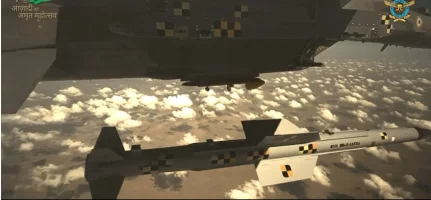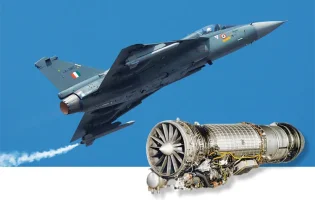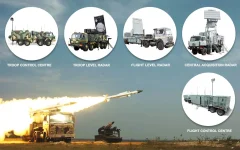- Views: 1K
- Replies: 9
Hindustan Aeronautics Limited (HAL) is experiencing a surge in inquiries from countries operating Su-30 fighter jets seeking spare parts for the AL-31F engines. This increased demand stems from disruptions in Russian supply chains, exacerbated by the ongoing conflict in Ukraine and the heavy operational use of the Su-30SM in frontline combat.
The AL-31F, developed by Russia's Ufa Engine Industrial Association (UMPO), is a crucial component of the Su-30 aircraft, including the Indian variant, the Su-30MKI. This engine is renowned for its reliability and performance and is integral to the operational capabilities of numerous air forces worldwide.
However, the ongoing war has significantly disrupted Russian manufacturing and logistics, causing delays in the supply of both new engines and spare parts. This has created challenges for countries operating Su-30 aircraft, as they struggle to maintain their fleets at optimal readiness levels.
The extensive use of the Su-30SM in frontline combat has further exacerbated the situation, accelerating the need for maintenance, repairs, and overhauls. This has put additional pressure on the already strained supply of engine parts.
HAL, which has been manufacturing and maintaining AL-31F engines under license from Russia, has emerged as a potential alternative supplier for countries seeking to mitigate their supply chain risks. Nations like Malaysia, Vietnam, and Algeria, among others, have expressed interest in sourcing spares from HAL.
However, HAL faces a significant obstacle: the need for Russian export clearance. Russia retains intellectual property rights over the AL-31F engine, meaning HAL cannot export these components without explicit approval from Moscow. This requirement extends to the overhaul of engines, a lucrative business for Russian firms, especially in countries lacking their own Maintenance, Repair, and Overhaul (MRO) facilities.
This situation presents both challenges and opportunities for HAL. While it could significantly expand its footprint in the global defence market by providing spares and MRO services, it remains reliant on Russian approval. This highlights the complexities of international defence collaborations and the influence of geopolitical dynamics.
This scenario may encourage more structured collaborations between Indian and Russian defence industries, potentially leading to agreements that could expedite obtaining necessary clearances or even co-production rights. If clearances are granted, HAL could significantly benefit from providing MRO services, not just for India's Su-30 fleet but also for international customers, establishing India as a hub for Su-30 maintenance in Asia.
Furthermore, this situation underscores the importance of diversifying defence supply chains to mitigate geopolitical risks. Countries may increasingly look to diversify their sourcing or invest in local production capabilities to reduce their reliance on single suppliers.




